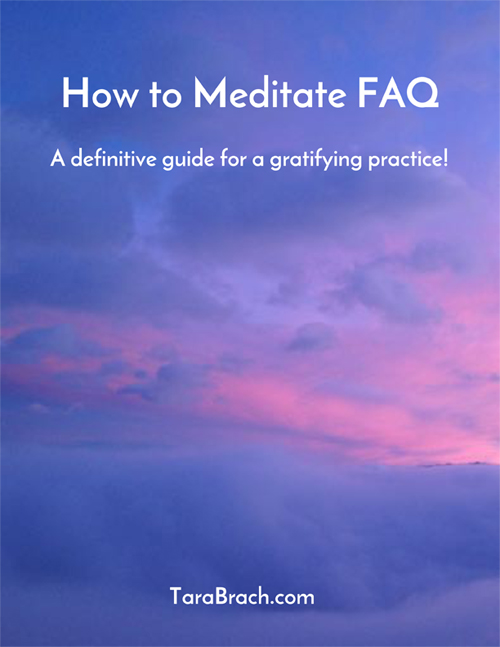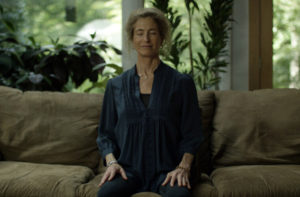In Shamanistic cultures, it is believed that when a person is traumatized, their soul leaves their body as a way to protect itself from intolerable pain. In a process known as Soul Retrieval, trusted community members surround the person with tremendous love and safety. In this sacred space, the soul is invited back in so the person can become whole.
When Our Coping Strategies Fail
In the simplest terms, trauma happens when our nervous system becomes overwhelmed and our most primal coping strategies fail. If we are unable to fight or flee what is attacking us, we freeze and disconnect or dissociate in a way that the unprocessed fear gets locked into our body. We become “stuck” in a biological state of stress, fear and reactivity, leading to chronic anxiety, depression, addictions and, often, the constellation of symptoms that we call PTSD.
This process of disconnecting and living with reactivity to the unprocessed fear is not a rational choice. Rather it’s a coping strategy that is driven by our limbic system because, when traumatized, we don’t have access to the reason, compassion and mindfulness of our more recently evolved brain. Nor, when traumatized, do we have access to the potential care and safety offered by others.
Yet sadly, the most painful layer of suffering that surrounds trauma is shame. We blame ourselves for the ways our body and nervous system found to survive. The process of recovery is to awaken self-compassion, and reconnect with our natural aliveness and that lost, sacred sense of spirit.
Cultivating Love and Safety
When teaching meditation, we talk a lot about directly contacting the reality of this moment with kindness and clarity. When working with trauma, it is important to understand that at first, resourcing is essential before direct presence is even possible. By taking the time to first cultivate a sense of love and safety, we can avoid the danger of re-traumatization and strengthen the foundation for the transformational work ahead.
Whether in the care of a therapist, a close friend, or a teacher, we begin to find ways to create a sense of trust and love that can hold our experience and a connection where we are reminded of our intrinsic worth and basic goodness. We are wounded in relationship; we heal in relationship. This is how we start to loosen the deep shame that accompanies trauma and come back into the wholeness of our being.
It’s Not My Fault
One student was directed to Buddhist contemplative practices by her therapist a few years ago. Growing up, she experienced a great deal of trauma and struggles with depression, anxiety and PTSD. But the most devastating effect of her experiences has been a pervasive sense of shame and badness, a sense of being broken beyond repair. Her belief has been that the bad things that have happened to her could have been avoided had she just been somehow better, stronger, braver…
For several years, she has attended my classes and retreats and our work together has often centered on fostering a sense of love, safety and trust, and reminding her of her own bright goodness. We spent much time practicing meeting intense emotions with gentleness, kindness and love. She has found that with each round—whether done alone or with her therapist—there is some shift in consciousness.
Recently, she sent an email that described sitting in her therapist’s office frozen in shame about how her body and mind responded to some of the abuse that happened and how much it has affected her life. She writes:
“Because I spend more time these days not in that place of shame than in it, I think I forget how dark and thick and suffocating it can be, how brutal my own self-criticism can get. It doesn’t creep up but, rather, jumps out suddenly from behind doors and around dark corners. Somehow, I am always taken by surprise…”
She continues, “I was really stuck in it, so my therapist asked what my teacher might say and I struggled some, but finally landed on the answer: ‘It’s not your fault.’ When I remembered that what happened to me and the way I responded to it is really not my fault, my heart broke open. I was flooded with tenderness and relief.”
Finding Our Way Home
I’ve noticed over many years of working with people who have been traumatized, that when self-compassion begins to arise, it can lead to an experience of profound spiritual healing. Soul recovery. When the path is illuminated by loving awareness, even the most broken heart will find its way home.
Rashani Rea writes:
There is a brokenness
out of which comes the unbroken,
a shatteredness
out of which blooms the unshatterable.
There is a sorrow
beyond all grief which leads to joy
and a fragility
out of whose depths emerges strength.
There is a hollow space too vast for words
through which we pass with each loss,
out of whose darkness we are sanctioned into being.
There is a cry deeper than all sound
whose serrated edges cut the heart
as we break open
to the place inside which is unbreakable
and whole
while learning to sing.[1]
Adapted from: Healing Trauma: The Light Shines Through the Broken Places, a talk given by Tara Brach on 3/8/17
[1] Réa, R. (2001). The Unbroken. Retrieved March 26, 2017, from http://rashani.com/arts/poems/poems-by-rashani/the-unbroken/
Photo Credit: “Inti Illimani” from “The Drifters” collection / Artist: Claudio Basso / zenphoto.online / used with permission.


